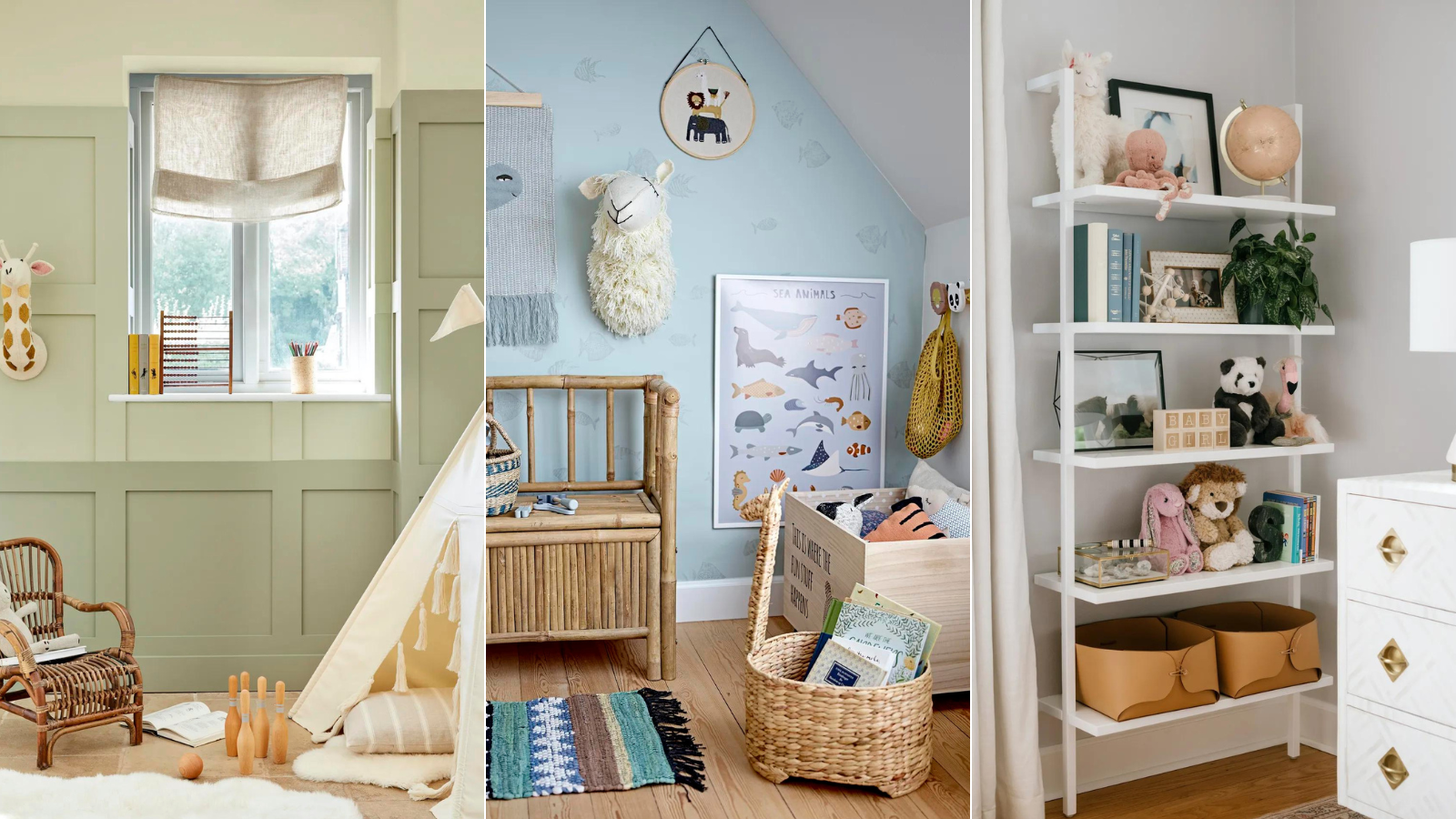
Design expertise in your inbox – from inspiring decorating ideas and beautiful celebrity homes to practical gardening advice and shopping round-ups.
You are now subscribed
Your newsletter sign-up was successful
Want to add more newsletters?

Twice a week
Homes&Gardens
The ultimate interior design resource from the world's leading experts - discover inspiring decorating ideas, color scheming know-how, garden inspiration and shopping expertise.

Once a week
In The Loop from Next In Design
Members of the Next in Design Circle will receive In the Loop, our weekly email filled with trade news, names to know and spotlight moments. Together we’re building a brighter design future.

Twice a week
Cucina
Whether you’re passionate about hosting exquisite dinners, experimenting with culinary trends, or perfecting your kitchen's design with timeless elegance and innovative functionality, this newsletter is here to inspire
A dedicated space to store toys, books, and general kid-related clutter is a real luxury, not to mention that it keeps the kids happy, so be sure to make the most of it by avoiding any playroom organizing mistakes. Get it right, and you buy yourself a good few hours of downtime, too.
Shove a load of toys in, and the kids will play for hours, right? Wrong. That’s your first mistake (don’t worry, it’s a common one). There’s actually a lot more to organizing a playroom than you might think. And there’s a lot on the line, too; as any expert will tell you, there’s nothing like clutter to cramp creative play.
With so many insta-worthy playroom ideas out there, all showcasing different home organizing ideas and playroom storage ideas, it can be hard to know what to do – which will suit you and your kids best? To narrow down your options, we’d suggest starting with what not to do instead.
Playroom organizing mistakes to avoid
It goes without saying, but we’ll say it anyway. When organizing a home with kids in mind, particularly a playroom, where they’ll likely spend a lot of time, you’ll need to make safety your number one priority. Failing to do this is a mistake you simply can’t afford to make.
Below, we’ve listed the playroom organizing mistakes professional organizers see all the time (as well as a few we’ve made ourselves). Swerve these, and you’ll likely swerve a few tantrums, too – take it from us.
1. Not including kids in the process
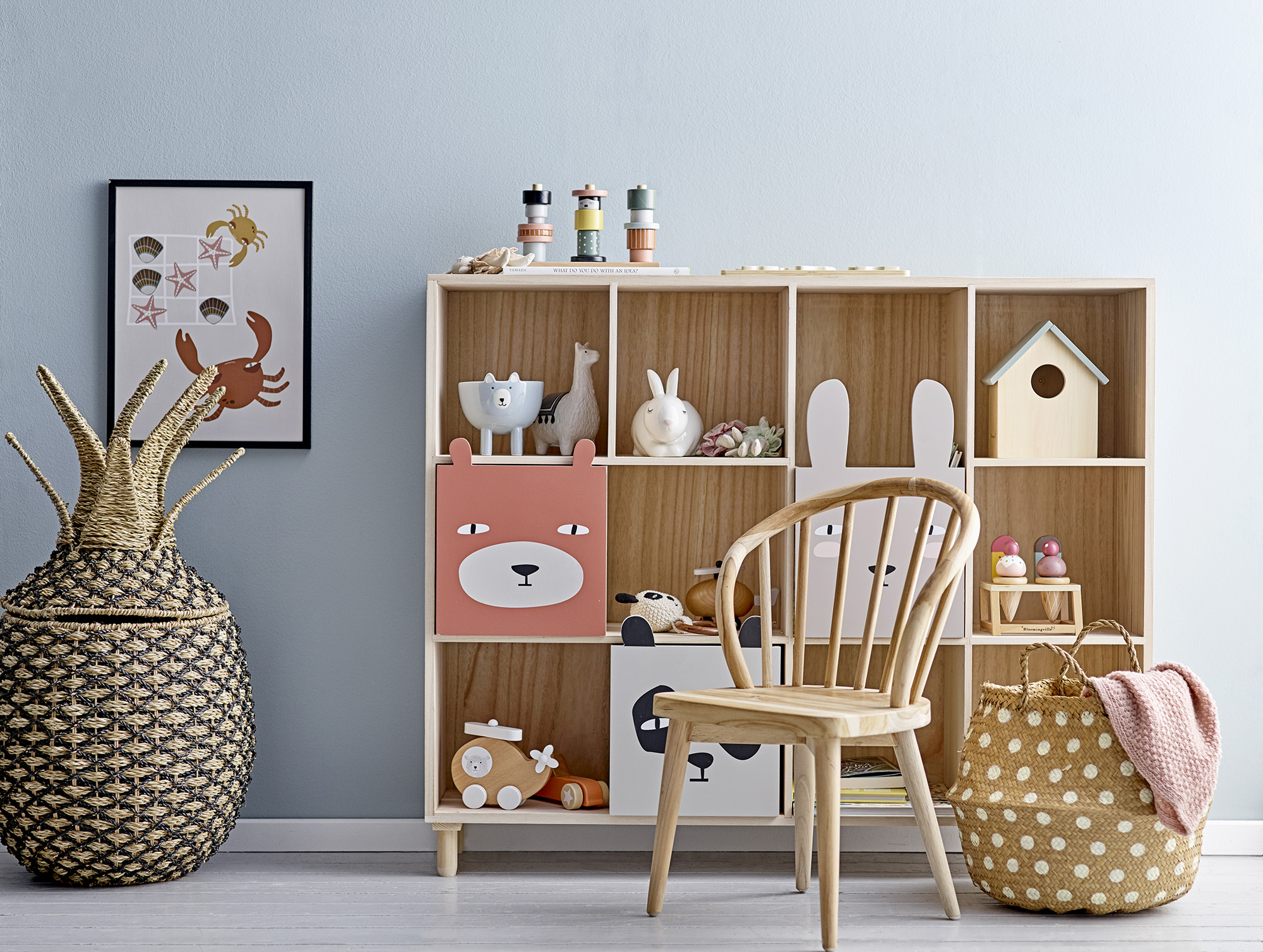
Organizing toys is the first step towards a well-organized playroom, but before you start moving things around, know that children can find it frustrating if you do this without consulting them.
‘Be sure to discuss with your children how they might want to organize certain toys. You might want to organize LEGOS by theme, but your child might prefer pieces by size or by color. If you choose a system that they don't want, it will always be a struggle to get your kids to keep the space organized’, says professional organizer Lauren Saltman, founder of New Hampshire-based Living. Simplified.
Design expertise in your inbox – from inspiring decorating ideas and beautiful celebrity homes to practical gardening advice and shopping round-ups.
2. Making systems too complicated
Parents have a tendency to ‘over-organize’, then get frustrated when kids don’t keep up with the system,’ says Lauren.
Keep things as simple as possible by sticking to generic categories; ‘vehicles’, rather than ‘fire trucks’, ‘police cars’, ‘diggers’, for example. You can always expand on categories as they get older or when they’re more familiar with what goes where.
3. Hiding things away
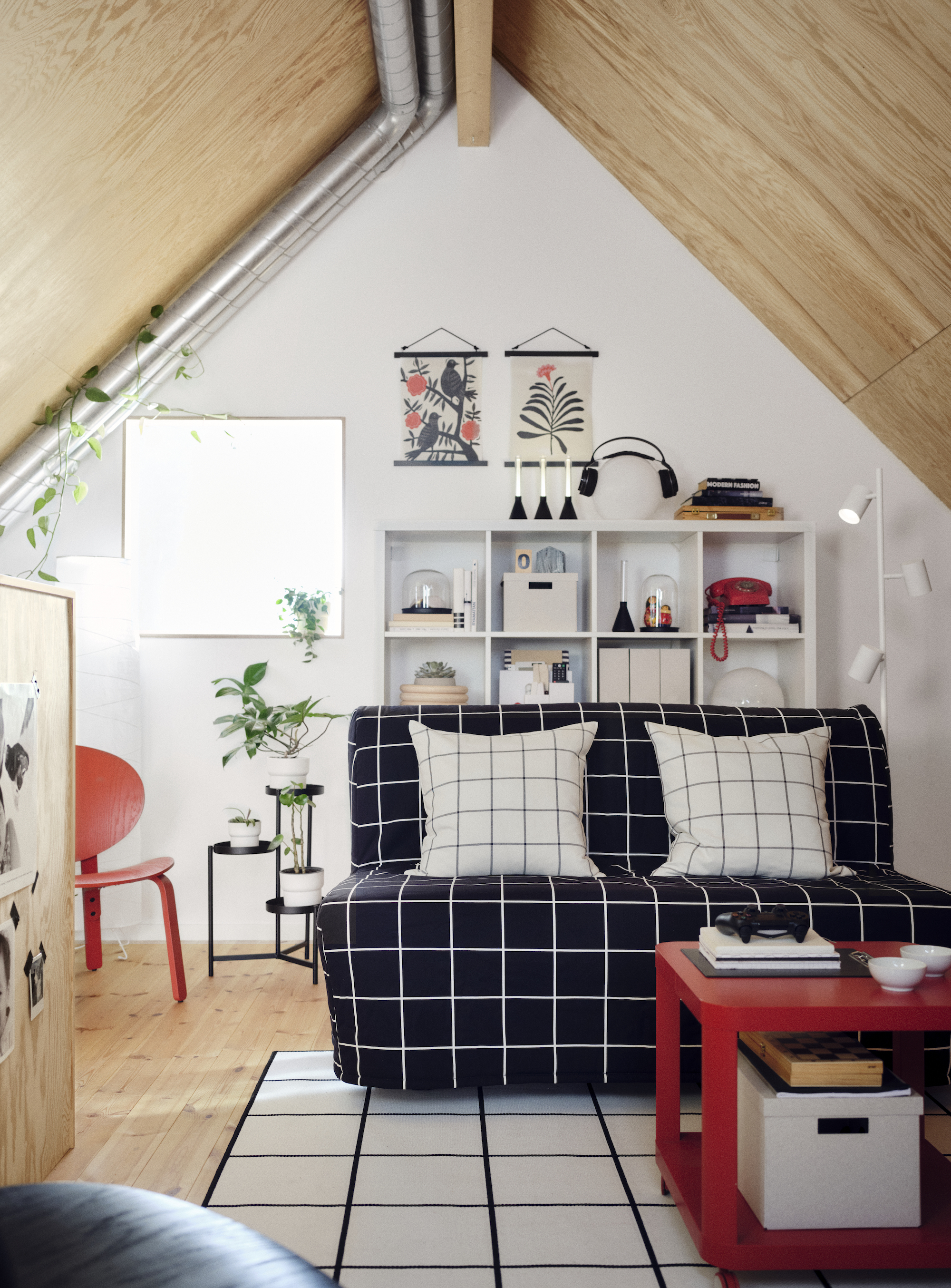
We’re all for tidiness, but it’s important to remember that the primary purpose of a playroom is for playing, so toys need to be accessible. Out of sight, out of mind applies to kids, so you ideally want things to be as visible as possible, too.
Opt for low-level open storage where you can, so children can access what they need quickly and tidy up just as quickly (here’s hoping). If you’re storing items behind closed doors, as part of organizing a closet, for example, be sure to use clear containers like these from Amazon, so they can see what’s inside at a glance.
4. Overlooking toys and activities that require supervision
Accessibility is key in a playroom, but it’s important you use judgment. Certain toys are best kept out of reach until a time when you’re around to supervise; tricky puzzles, messy craft sets, water or sand play, and so on.
This is particularly important if you’ve got children of varying ages. What’s suitable for your older child to play alone with may not be suitable for your younger child, so be sure to organize and store accordingly – and safely.
5. Thinking more toys means better play
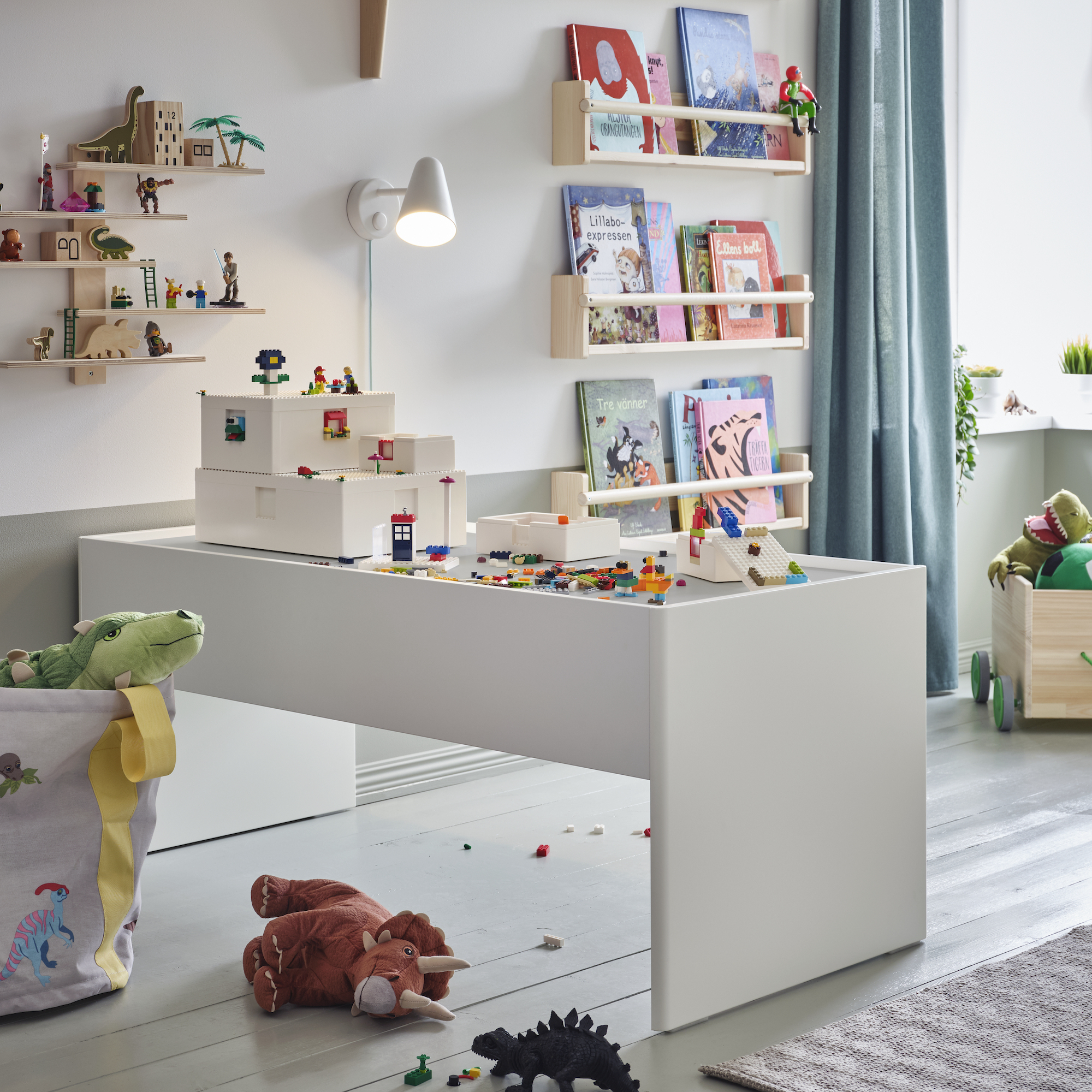
Your kids may beg to differ, but when it comes to toys, less is more. And that’s coming from the pros. ‘We all like to spoil our children with lovely things, but too many choices and decisions can cause them to become overwhelmed and lose interest more quickly, ' says professional organizer Vicky Silverthorn, founder of You Need A Vicky.
If it’s an inspirational playroom you’re after, decluttering toys is a good idea. However, don’t make the mistake of doing it without your child’s say-so –experiencing declutter regret is bad enough as an adult, let alone as a little one who’s still learning to express their emotions.
‘Simply marching into a playroom with a trash bag and announcing a toy purge is a big mistake,’ warns professional organizer Shannon Krause, co-founder of Tidy Nest. ‘However, encouraging children to search for toys they no longer play with and explaining how they might bring joy to less fortunate children transforms the experience. Suddenly it’s not about parting with toys, it’s about sharing happiness. I’ve found it to be a real game-changer.'
6. Not labeling
Baskets, containers, and cubby-style storage units with boxes are great for organizing children's clothes and school supplies, as well as organizing children's books and toys, but if your kids can’t find what they need when they need it, it’s a wasted effort. Labeling can make all the difference. Don’t forget to add a picture if younger siblings aren’t of reading age yet.
7. Failing to future-proof
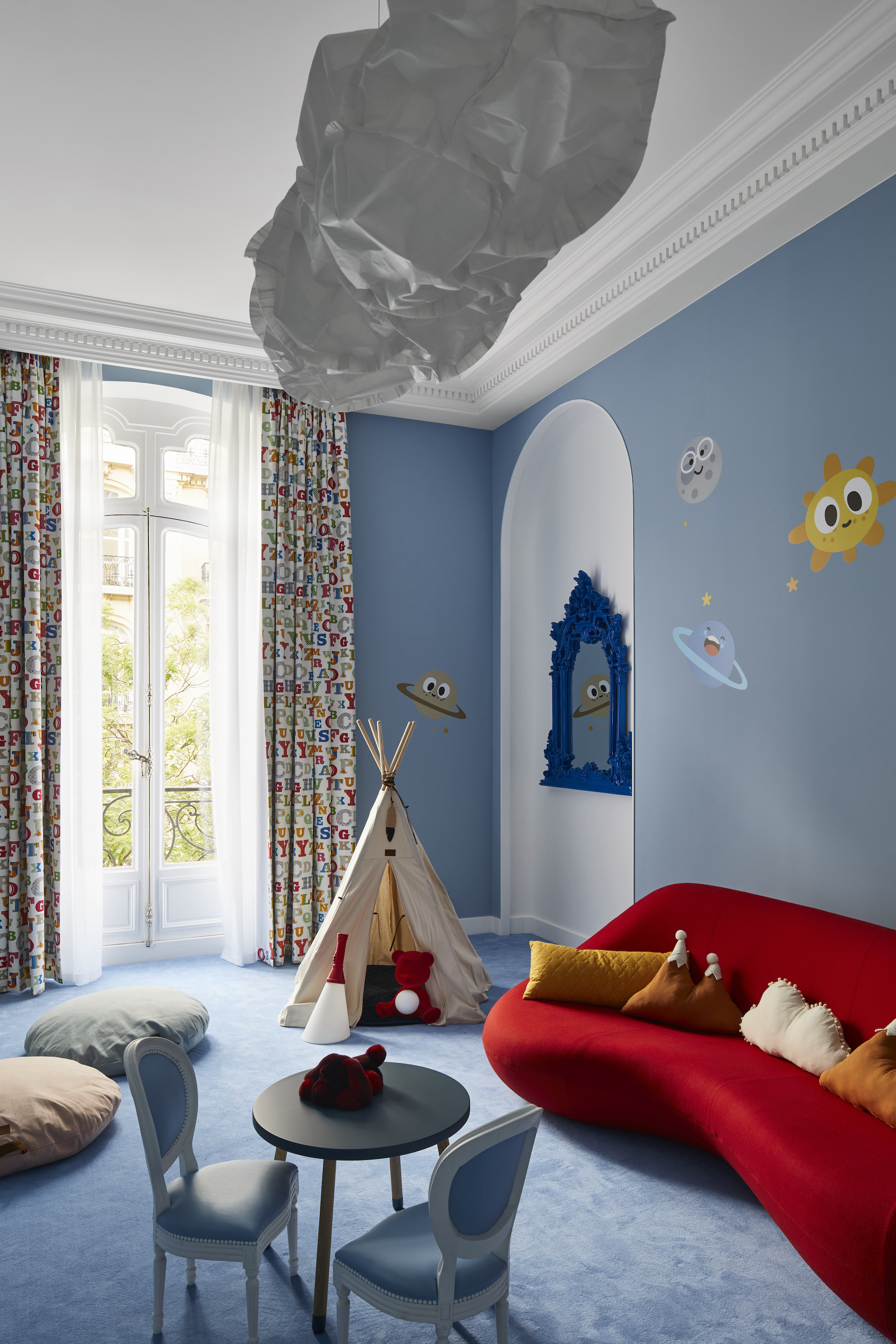
You may not want to acknowledge it, but children grow up, and quickly, too. Investing in stylish furniture and storage is all well and good, but if it can’t be adapted to fit their needs over time, it’s going to cost you, quite literally, which is not ideal if it's budget playroom ideas you're after.
'Think ahead and invest in pieces that will last – a multifunctional design that will see you from toddler to teen. Something that’s flexible, practical, and stylish; white's a good choice as it will go with any decor scheme. Look out for options that allow you to create a desk space for homework,' says Lucy Searle, global editor-in-chief of Homes & Gardens.
8. Allowing clutter to build again
Many people make the mistake of assuming that decluttering toys stuff is a one-and-done task. The truth is, without a regular decluttering schedule, your playroom can quickly become cluttered again’, says professional organizer Michelle Urban, founder of Portland-based The Organized House.
‘To avoid this mistake, try establishing a regular decluttering schedule, perhaps every few months or around special holidays or birthdays. This helps maintain an organized playroom by preventing the accumulation of unnecessary items. By clearing out unwanted toys, books, and other items, you can make space for new ones and keep your playroom tidy and functional.'
9. Forgetting to factor in fun
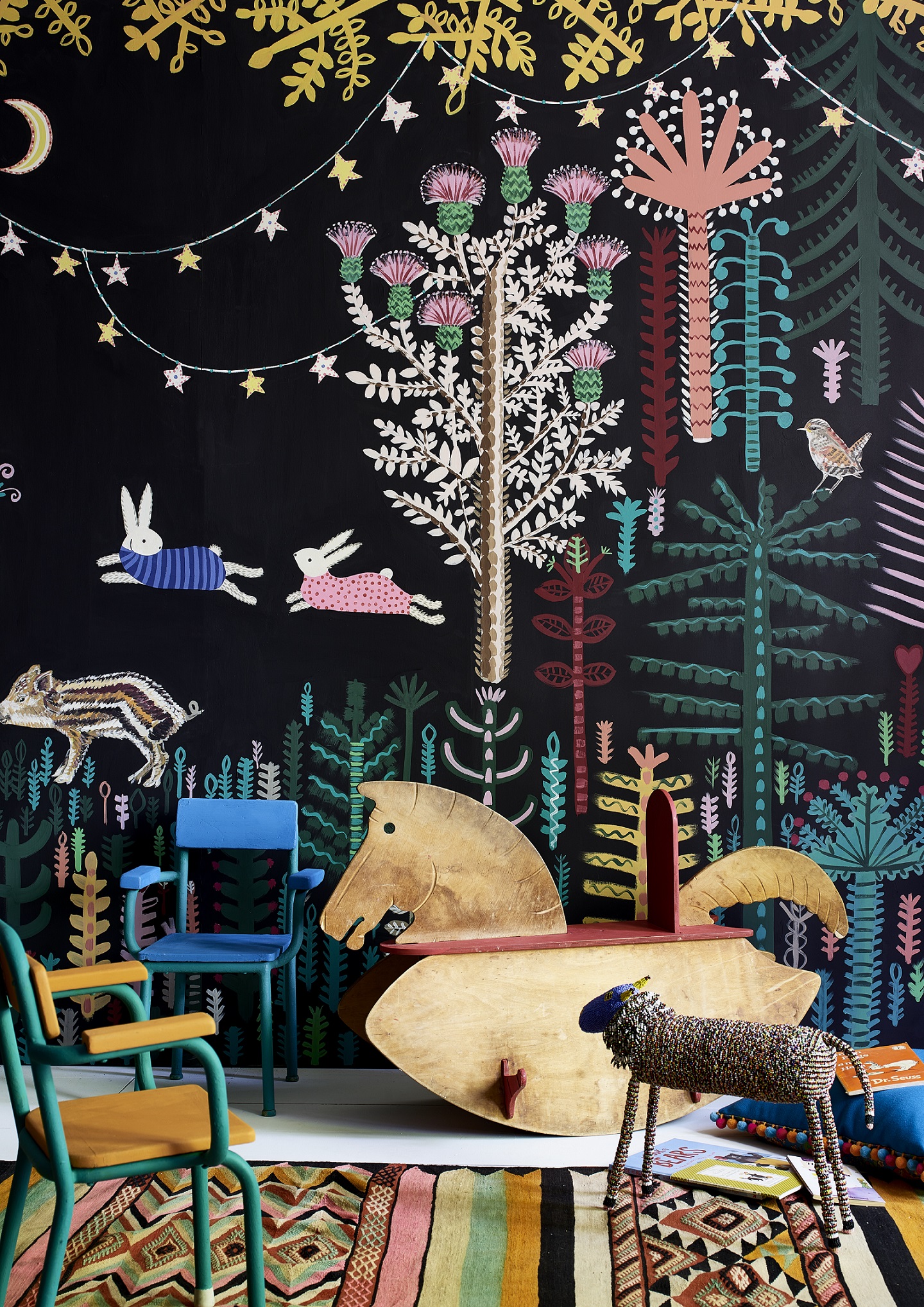
Your playroom may be well-organized, but if it’s too cold and sterile, your child isn’t going to want to spend time there. Don’t be afraid to get a little creative; the more imaginative your solutions, the better. Think colorful storage boxes, front-facing bookshelves, and stuffed animal hammocks like this one from Target. The same goes when organizing a kid’s bedroom, too.
FAQs
How do you organize a messy playroom?
With good play comes a bit of mess, so the key is not to try and prevent it altogether but to manage it in a way that suits you and your child. The most successful playroom ideas take a ‘less is more’ approach, decluttering first before implementing simple systems and storage solutions that make it easy for children to find things and – with a little encouragement from you – put them away afterward!
Keeping a playroom neat, tidy and well-organized is a challenge, but one that’s hopefully infinitely easier now you know what you’re doing wrong – and how you can change it for the better. From one parent to another, good luck!

For 10 years, Tara King worked as a Content Editor in the magazine industry, before leaving to become freelance, covering interior design, wellbeing, craft and homemaking. As well as writing for Ideal Home, Style at Home, Country Homes & Interiors, Tara’s keen eye for styling combined with a passion for creating a happy – and functional – family home has led to a series of organization and cleaning features for H&G.
